Queers and witches resonate. We have a long tradition of identification with the monstrous; part of it is centuries of queer coding, and part of it is the way we’ve been treated over the years. There’s just something about possessing a secret self that society sees as a threat and would happily destroy you over if they found it out. Add to that the trope of the witch, an independent woman who rejects patriarchal beauty standards and men and pushes back against society hard and you have a perfect queer archetype.
For a lot of us, Harry Potter was our first introduction to the witch as hero and illuminated a world where outsiders could be heroic before we’d even worked out why we felt like outsiders ourselves. Plus, it’s full of the metaphors and subtext that were the closest thing you could get to actual representation back when a lot of us were growing up. The thing is, while queers love Harry Potter, it doesn’t always love us back. As the latest disappointing but unsurprising movie announcement shows, it is never going to give us more than metaphors. But luckily, witch fiction is everywhere and a decent amount of it features actual queers being explicitly queer on the page. I’ve waded through a huge amount of dross to find you ten novels featuring bi, trans and lesbian witches.
The Witch of Wildtal by Jocelyn McDaniel

After they were outed to the community Edith was forced into marriage and Mechtilde became a hermit in the forest. Edith’s husband thinks its time for the three of them to reassess their lives and relationships, but the village has a long memory and something about being a lesbian living alone in the wilderness just screams witchcraft to them. But Edith is tough and clever, Mechtilde has magic on her side and the forest itself decides to get involved.
As a medievalist, I really liked this book because it acknowledged the strange cognitive dissonance surrounding magic in the period. The church saw bad magic as witchcraft, and all magic as bad, but most people distinguished between witchcraft and good magic up until the moment something went wrong. I also found bisexual Edith’s navigation of her situation, her emotions and her desires really wonderful — she’d had her agency taken away as a young woman but instead of letting Mechtilde or her husband take charge when their lives implode she’s the driving force behind fixing everything.
The Witch Sea by S.E. Diemer
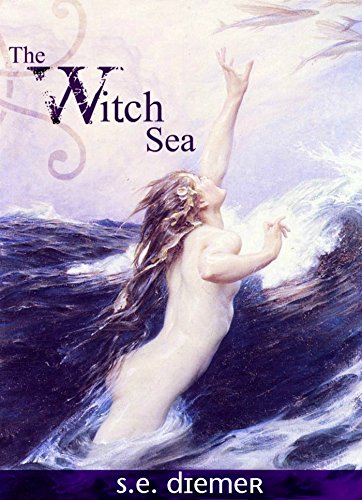
The Witch Sea is a lyrically written book about loneliness, duty and love. Meriel, who must keep the sea god and all his creatures penned in, and Nor, the selkie sent to persuade her to let them out, find something beyond their differing loyalties together. It reads a lot like the sort of stories that were intended as a metaphor for the queer struggle back when you had to be careful even about subtext, except that right in the middle of it Merial and Nor are thoroughly queer and in no way apologetic about it. While Merial has some anguish about her queerness, she’s concerned about being unable to carry on the family line and legacy and not at all about her desire for women. The ending is happy, but it isn’t romantic; the women reach for something greater than that, something that takes them on different paths.
The Witches of New York by Ami McKay
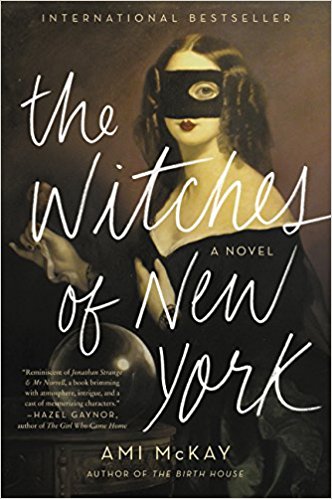
In nineteenth century New York, two witches run a tea shop and are looking for a third. Teenage Beatrice desperately wants there to be magic in the world and to do something exciting, like live in the city and be an independent woman for a while before she becomes somebody’s wife. Adelaide and Eleanor welcome her into their circle but demons and a witch hunting clergyman are moving in the city and Beatrice becomes the object of his obsessive attentions. Meanwhile the witches face eviction at the hands of Eleanor’s ex lover’s very angry husband and ghosts and fairies meddle from the shadows. Part crime thriller, part mystery, part story about love, grief and family, The Witches of New York winds domesticity with magical conflict on a grand scale.
Daughter of Mystery by Heather Rose Jones
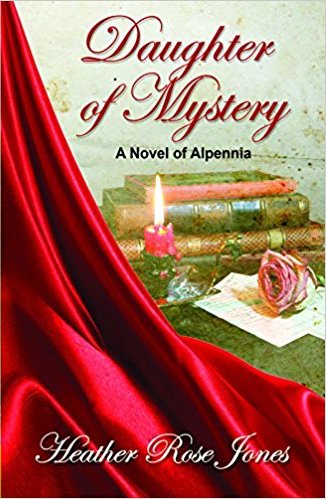
Barbara No Name was sold to her godfather to pay her father’s debts and spent her teenage years acting as the old man’s bodyguard. Breaking his promise to free her upon his death, he instead leaves her to his other god daughter, Margarite Sovitre, along with the rest of his fortune — with a condition that prevents Margarite or her guardians from freeing her until they’ve both reached the age of majority. Horrified to discover that she now owns a person, Margarite makes the best of it, using her new wealth to set the two of them up in the city and finally attend university to study magic. Abduction attempts, social sabotage and political intrigue follow, with both women in over their heads and dependent on each other for survival. This could so easily have been a story romanticising an abuse of power but Jones skillfully avoids that, with Margarite carefully keeping her feelings hidden until circumstances change to put them on an equal footing.
Kissing the Witch by Emma Donaghue

Kissing the Witch is a series of interconnected fairy tales, each one beginning when the teller asks another character for her own story. Featuring lesbian princesses, bisexual fairies and over and over again women breaking with the fairy tale narrative to pursue what she wants instead of what she should. Fairy tales were originally written as handbooks on womanhood — be good, be quiet, be obedient or you’ll be eaten by the wolf, do as you’re told and be happy — and Donahue consciously and smoothly inverts all of that. She also strips away the euphemisms and the romanticisation of violence inherent in the original stories, throwing the reality of them at the reader’s feet. Hansel is a grown man and a predator, Snow White’s stepmother is trapped and ruthless in pursuit of her own safety. The final story features a witch who relies on herbs and psychology rather than magic, securing independence for herself and the freedom to make her own choices for her client’s daughter.
A Crown for Cold Silver by Alex Marshall
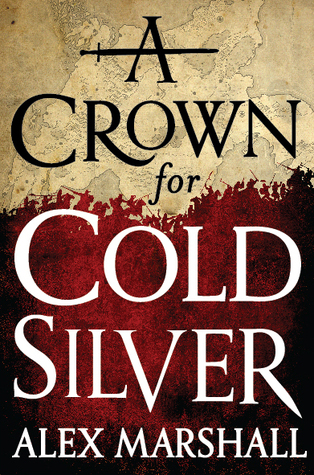
After discovering that the sweeping political reforms she’d fought the empire to put into place were impossible to achieve, Zosia faked her own death and retired with her lover to the countryside. After a series of improbable coincidences sees her lover killed by the empire’s men Zosia, consumed by revenge, sets out with her demon familiar to make the world burn. Meanwhile her former colleague, bored with his life, his disdainful husband and respectability, has convinced his daughter to masquerade as Zosia reborn and raise an army for their own purposes. Hyper violent, and filled with queers and people of color, this is basically a pulp fantasy novel without the heteronormativity and patriarchal gender roles.
Maywitch by Ria Fritz
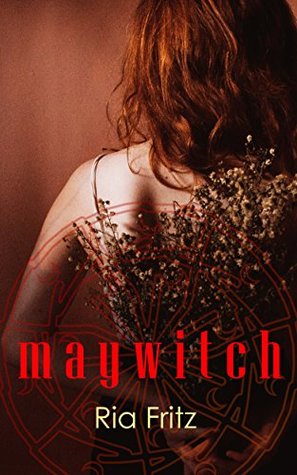
Kay doesn’t want to be involved with other witches, but she gets drafted into their version of the FBI. Along with her half sister and her childhood best friend turned enemy, who annoyingly enough happen to be dating, she gets caught up in a magical civil war featuring demon summoning and cult like terror cells. Maywitch reads like one of the standard urban fantasy/secret agent thrillers except that it’s full of lesbians and bisexuals whose relationships are treated in exactly the same way as straight romances are in the rest of the genre. There’s something really relaxing about reading a novel in a genre you like that’s also queer normative and feeling like the target audience for once, something Fritz does perfectly here.
Gretel: A Fairy Tale Retold by Niamh Murphy
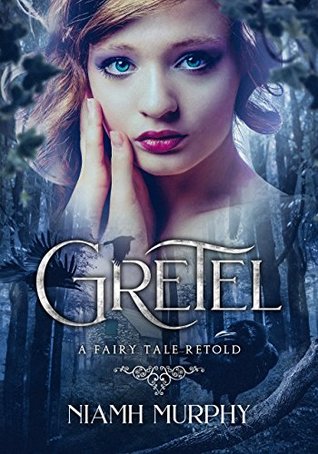
Another in the queered up fairy tales genre, Gretel provides a completely different take on the story. She and her brother Hans aren’t children abandoned in the woods, they’re itinerant workers looking for a place to settle down, hungry and pursued by wolves. The witch takes them in despite Hans’ protests, more concerned with his pride than their survival, and as she and Gretel grow closer his hostility builds to a dangerous point. Though Gretel and the witch’s relationship does seem to develop a little fast it’s still a great, albeit darker, piece of escapist fantasy where toxic masculinity and homophobia are the villains which ultimately defeat themselves.
Queer Magick by L.C. Davies
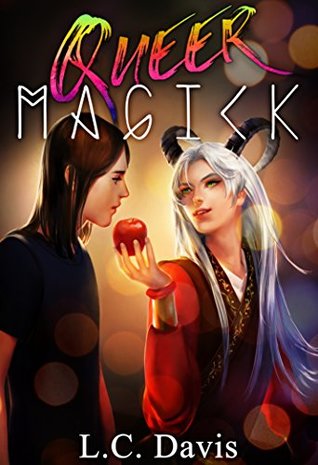
Confused transfemme Holden flees to the small town of Stillwater in an effort to escape the religious abuse of her childhood. Once there she discovers the town is full of supernatural beings, some of whom would like to eat her and some of whom want her to help them bring about the apocalypse. Naturally, romance abounds. Though it’s made clear to the reader through her inner monologue, Holden hasn’t actually worked out that she’s trans by the end of the book and still thinks of herself with male pronouns, occasionally referring to herself with slurs. But if you won’t find that off putting, the book is a weirdly light popcornish read for all its serious themes.
A Discovery of Witches by Deborah Harkness
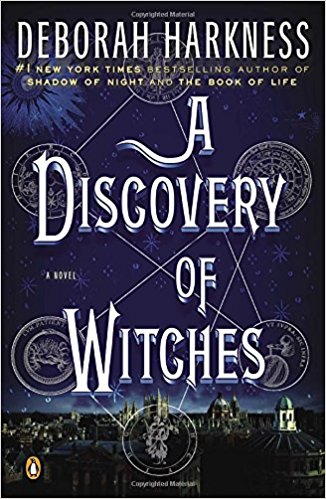
Imagine Twilight if the target audience were thirty year old academics. Diana Bishop, medieval history professor, witch and orphan finds a lost spellbook in the Ashmolean library and ends up falling in love with a 300 year old vampire, accidentally kicking off a war in the process. Even though Diana is straight she’s such a real relatable character that its very easy to fall in to her narrative, and the book has a decent amount of queer cast members — including the lesbian aunts who raised Diana, taught her magic and are wonderfully unimpressed by the very concept of vampires.
Got a favorite queer book about witches? Share it in the comments!



Fun list!
I loved the Witch Who Came in From the Cold serial on serialbox.com. But I have a feeling, given the radio silence about it while other serials are promoted, that it isn’t going to have a 3rd season. Wahwaah.
Cold war intrigue and a bisexual badass spy-witch (and an endearing closeted CIA gay boy). Second season wasn’t as good as the first, but still want more. The audio version is also really well done and included when you buy a “season pass”.
I just finished the third book in the series for A Discovery of Witches – I loved every second of it. I hope Deborah Harkness keeps the series alive. There is still so much more to tell.
I love your description “Imagine Twilight if the target audience were thirty year old academics.” Spot on. :)
That is the best description of A Discovery of Witches ever and is exactly why I loved it (although the trilogy did go a bit off the rails).
another great read is Labyrinth Lost by Zoraida Cordova! brujas, not witches, and YA not NA or adult, but a truly excellent queer-things-magic-things-family-things read
Seconded!
The audio book is excellent. I finished it in about two days, in the middle of a super busy workweek. I just couldn’t put it down.
This seems like a great list! As a lesbian bibliophile and maybe sort of witch this should be perfect! (I’m currently too tired to read it all, will do in the morning.)
I’ve been re-watching Buffy lately and it’s super interesting (from an academic point of view) how they substituted magic and spells for intimacy and kissing in the Tara and Willow story. The interconnectedness of queerness (esp in women) and magic was also a topic in how Willow came out. (The witch thing is just a phase etc.) Even though I pretty sure I’ve seen in later interviews that is was just a way for the producers to work around the no-gay-kissing-rules the network had, and it wasn’t a conscious choice. The subversiveness of witchcraft lend itself perfectly for the queerness of the story.
I haven’t read these but there’s the Engelsfors trilogy (starting with The Circle) which is about a group of teenage witches, some of whom are queer, and Of Fire and Stars by Audrey Coulthurst, which features a young princess with forbidden magical powers who teams up with the (fellow princess) sister of the boy she’s betrothed to marry, to find the culprit of a high-profile assassination in the kingdom (and, of course, they fall in love.)
I guess, I am a little late to the party…
Thank you for the suggestions… I have read Witch Sea and Daughter of Mystery but not the others.
I’d like to add Roz Kaveney’s series: Rhapsody of Blood. Only 3 books are out.. but it is a very interesting series. The story is not about romance though… Or, it could be about an overarching romance and we will know only when the series ends, I suppose.
The two main POVs are queer women. One a loner (possibly immortal, I am not sure) who hunts people who sacrifice other people for power; and the other an Oxford student in love with a ghost. The second person and at least one other character in the series fit the criteria for witches in my opinion.
The immortal is a middle eastern/mesopotamian woman. (It is a take on Diana/Artemis except she acts alone)
And… there are very interesting trans women too.
The story is part alternative history, part alt-myth-retelling of different religious myths, part romance..and part mystery (the series villain is hidden and everybody is searching for him/it; and a lot of stuff happens in between).
There are also men in the series, though not POV characters, and there are some great and some not so great friendships between them and the leads.
It doesn’t tell you directly where it is going (I am still figuring it out), so you may not like that.
Oh… and it has this dry British humour, which I loved.